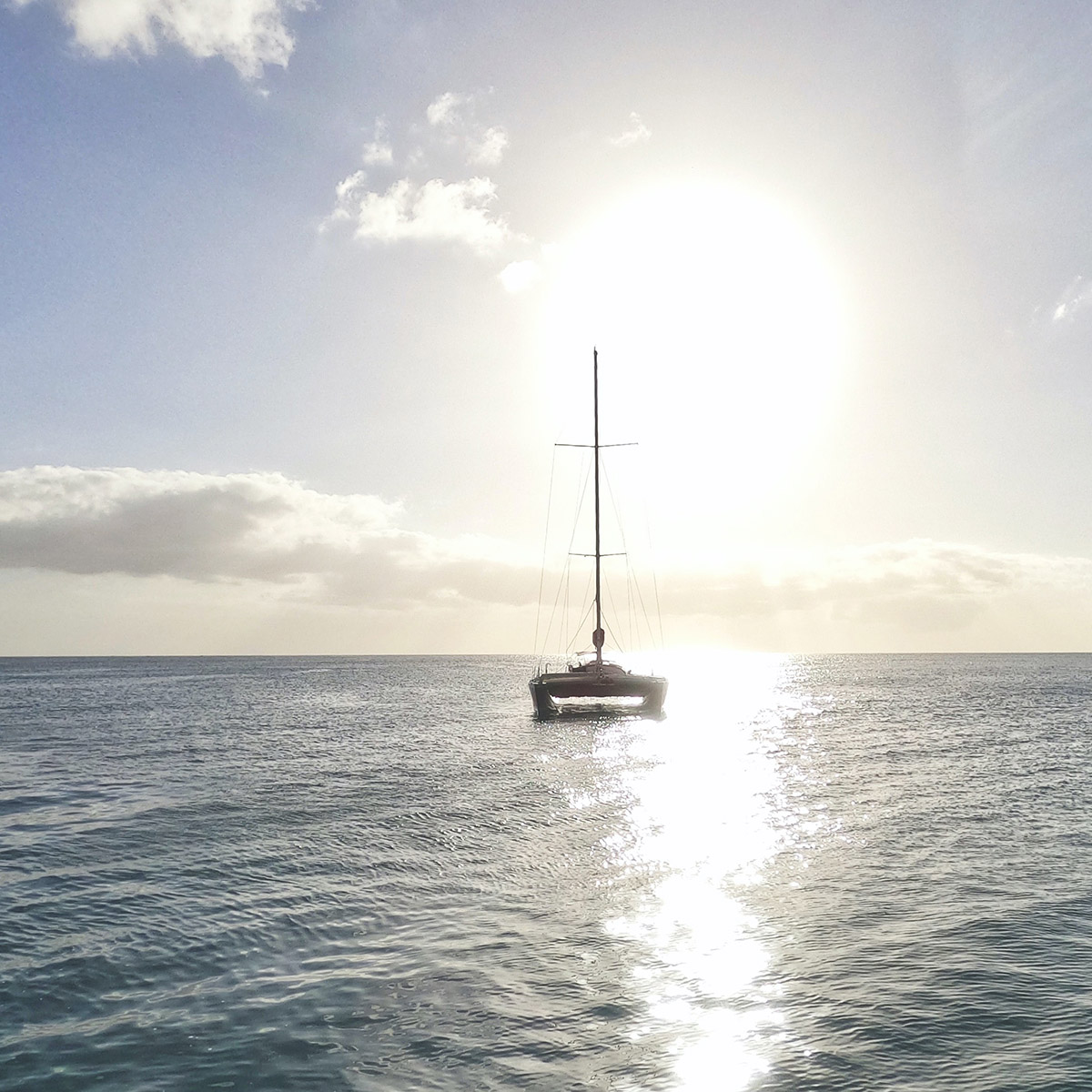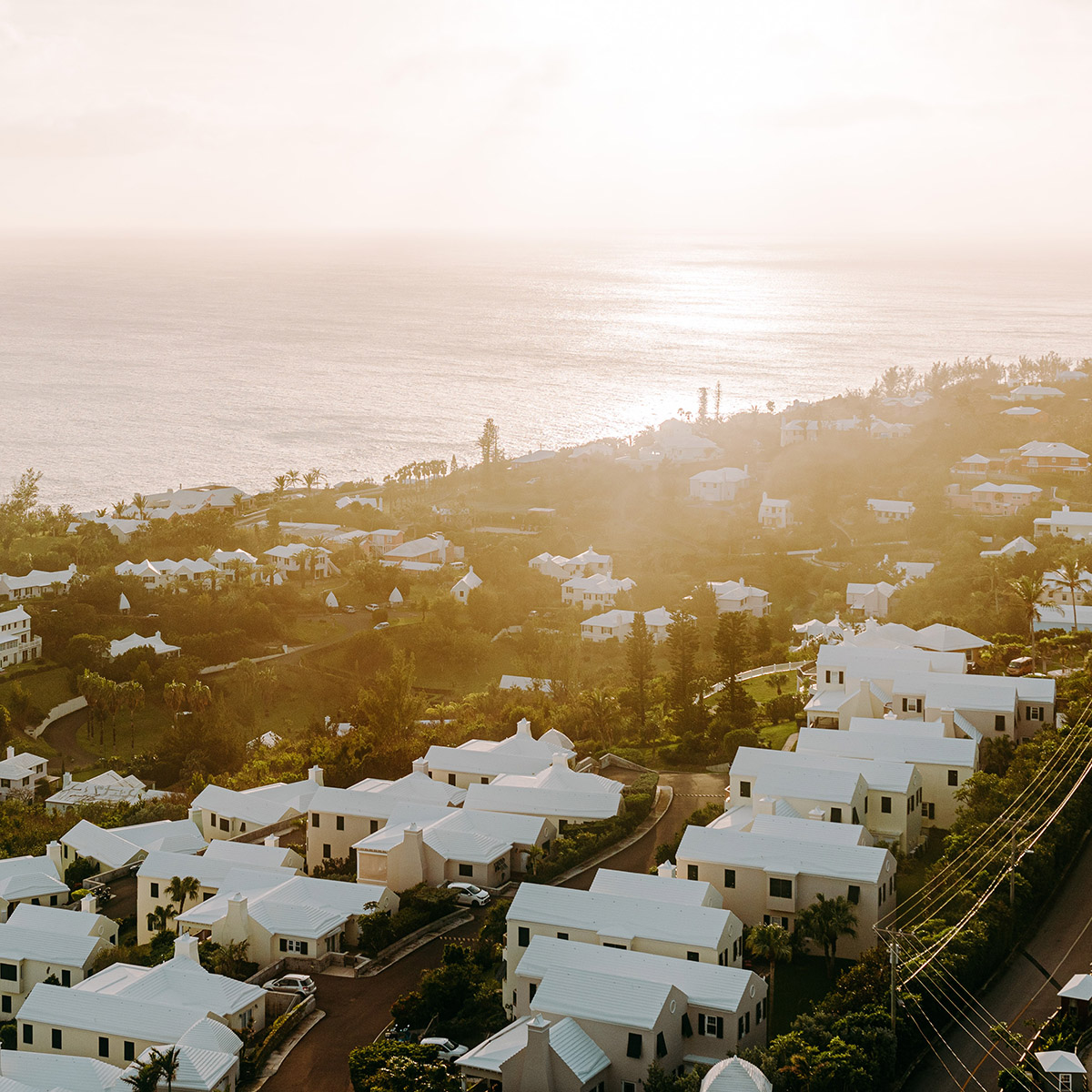The Best Remote Working Visas
Monday, 26 Oct 2020

Working from home has become the new normal for many of us, but if you’re feeling anything like we are then you’re probably starting to feel a little fed with seeing the same four walls everyday.
We’re forgetting however that one of the best things about remote working is that you can do it from almost anywhere - well anywhere that has a solid Internet connection.
With email and video chat apps; there is no real need to stay rooted in one place. That’s right, you don’t need to stay in that cramped apartment five days a week.
Recognizing this shift and thinking of ways to once again attract tourists after the devastating impact of COVID-19, several countries around the world have launched long stay visa programs designed to lure in these remote workers or digital nomads and allow them to experience a new environment to live and work in.
So whether you’re looking to explore and work from somewhere a little more exotic or experience the culture of an ancient city without having to take an extended vacation, there are options available to you.
We’ll round up the best destinations and the remote working or long stay visa options in place below.
Barbados

Sure you may think you’ve got a cosy working from home set up going but who wouldn’t want to live and work on a Caribbean island? That’s exactly what the government of Barbados is offering with their new Barbados Welcome Stamp visa.
Applicants can benefit from much more than just the stunning location; they will be exempt from Barbados income tax for the duration of their stay (up to a year) and the island boasts the Caribbean’s fastest fiber Internet connection – perfect for remote workers.
While Barbados has made outstanding progress in regards to coronavirus transmission, visitors are asked to take a COVID-19 test 72 hours prior to departure and bring their results with them. Individuals may also be required to upload their results online.
In order to be eligible, applicants must certify that they earn at least $50,000 per annum or have the means to support themselves or any dependents during the duration of stay.
The current fees are $2,000 USD for an individual visa or $3,000 USD for a family application.
Estonia

Estonia has recently opened applications for its Digital Nomad VISA (DNV), which enables international citizens to travel to Estonia while working for an overseas employer or in a freelance role.
The visa permits aliens engaged in jobs independent of location to work remotely in Estonia; with key sectors said to be technology, finance and marketing.
The Digital Nomad VISA can be granted for both short term and long term stay intentions and costs €80 or €100.
In order to qualify, applicants must they are a “digital nomad” meaning they are capable of working independent of location using telecommunications technology. Those interested should also have an active work contract with a company registered outside of Estonia and meet the minimum monthly income threshold of $3,504 during the six months before application.
As Estonia is part of the Schengen zone, those who are granted the Digital Nomad VISA are also eligible to travel to the other countries within the borderless travel area.
It’s important to note that due of the continued impact of the coronavirus pandemic, Estonia’s borders are currently only open to a handful of countries outside the EU, Schengen Zone, or the UK. Applications from the USA for example are not yet permitted.
Aruba

Back to sunshine in the Caribbean, the island of Aruba has launched their “One Happy Workation” program allowing individuals to live and work there for up to 90 days.
Exclusive to U.S. nationals, the program offers a “Workation” from paradise with applicants receiving great deals on the finest hotels, villas and condos in Aruba.
While providing you with a dreamy destination to work, the scheme also promises to allow you to “like a local,” with discounts and access to special local experiences.
To apply, all you need to do is book one of the packages available on the website for at least one week, and no more than 90 days. It may be possible to extend this in the future but not at this present time.
Applicants must hold a valid US passport but no other special visa or paperwork is required.
Remote workers must be employed by an overseas company or must be self-employed.
That doesn’t mean to say you need to be working to take advantage of the “One Happy Workation” program. According to the website, “working is not mandatory” and you can “spend the extended stay as you like”.
You may even be able to bring your dog with you!
Georgia

Georgia’s state program titled ‘Remotely from Georgia’ began August 27 and allows foreign citizens to travel to and work remotely from the country.
Applications are welcomed from citizens of 95 countries including the UK, Australia, USA, and Canada who intend to stay for at least 180 days.
Designed for freelancers and remote workers alike, applicants must prove they have the financial resources to pay taxes while staying in Georgia and should have a minimum monthly salary of $2,000.
On August 5 it was reported that there had already been 2,700 applications for the program and there had been “very high interest” from a range of financial organisations whose employees had started to work remotely.
If granted the visa, travellers must undergo mandatory 14-day hotel quarantine at their own expense. When their self-isolation period expires, applicants must take a COVID-19 test and if negative, they will be able to remain in Georgia.
Applicants must also have medical insurance for the duration of their stay.
Bermuda

The ‘Work From Bermuda’ program offers one-year residency, which can be renewed on a case-by-case basis, for digital nomads, professionals and even students.
Tourism in Bermuda has been severely affected by the coronavirus pandemic and the local government is hoping an extended stay on a Caribbean island will be attractive enough to increase the island’s population and give the economy a much needed boost.
In contrast to the $2,000 USD fee for the Barbados program, the Bermuda visa scheme costs only $263 and the application process seems pretty seamless.
Application requirements seem pretty open when compared to the other visa options discussed already discussed. In regards to income for example, applicants must only prove they are able to “maintain an income” without seeking employment in Bermuda.
In addition the inexpensive application fee, there are many other reasons someone may wish to work from Bermuda; the relaxed lifestyle, the sunshine and lightning fast internet speeds to name just a few.
With the average flight time of only 2.5 hours from New York, 3 hours from Toronto and 6.45 hours from London, Bermuda is sure to be an attractive prospect for those working remotely long term.
Visitors to the island are required to pass a COVID-19 test 72 hours prior to departure and upon arrival will have to take regular tests every few days for 2 weeks.
Dubai

According to the local government, Dubai’s new remote working visa will enable professionals and their families the opportunity to relocate to the UAE for up to a year while continuing to work virtually for companies in destinations all over the world.
In recognition of their efforts to safely reopen the country in the midst of the coronavirus pandemic, The World travel & Tourism Council (WWTC) has awarded Dubai the Safe Travels Stamp.
The remote working visa program, open to those who earn a minimum of $5,000 per month, will give digital nomads access to all Dubai services including schooling and costs $287 plus medical insurance.
Germany

Germany has been offering its “Frieberufler” or freelancer visa for a few years now, offering freelancers the chance to spend an extended amount of time in the European country - even up to 3 years.
To qualify, a local tax office must assess your freelance job as “liberal” as opposed to commercial.
“Liberal” professions in Germany include Healthcare, Law, Tax and business counseling, scientific/technical or linguistic and information transmitting. This apparently extends to artists, writers, marketers, and certain teachers.
The application fee for the freelance visa is €60 but this can rise to €140 or €260 given further residency and settlement permits.
Croatia

Croatia is set to jump on the remote working/digital nomad bandwagon and announce a visa option in the very near future.
Tweeting of the plans, Croatian Prime Minister Andrej Plenkovic said the new Aliens Act would make Croatia one of the first countries in the world to legally regulate the stay of digital nomads,”
We’ll have to keep our eyes peeled for the latest information from Croatia but it’s clear to see there are already a few options out there for the digital nomads amongst us.
Are you still working from home? How would you feel about working from one of the above destinations? Join the conversation on our Facebook or Instagram pages.
Our Most Popular Articles

Dubai’s Remote Working VISA Program
Dubai is seeking to take advantage of the move towards remote working by luring long-term travelers with an exciting new visa program that will allow them to live in the United Arab Emirates while working for companies overseas.

How to Move to America: A Starter Guide
Moving to America is still a very exciting prospect for people of many nationalities around the world. You can read our blog on the numerous reasons for moving to the USA to find out why. If you have decided to join the one million plus people who move to America each year, there are a number of steps you will need to take to make sure your dream is fulfilled. Send My Bag has put together a list of those steps to show you how to move to America and to set you off on the right track.

Top 10 Countries for Expats to Earn More Money
According to the 2019 HSBC Expat Explorer Survey, 18 to 35-year olds who move abroad see a salary increase of more than a third. In this blog we have listed the top 10 countries where you can expect to earn more money, based on how much disposable income the survey found expats in different countries to have.